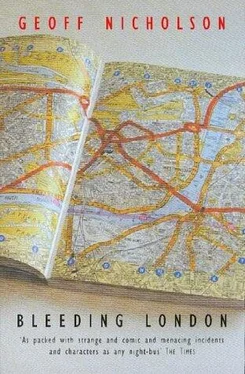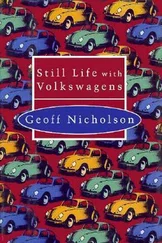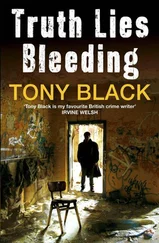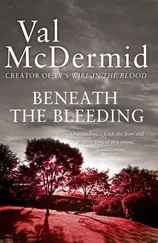And maybe this could be explained as part of a simpler desire just to show off, to say look at me, look what I’ve done, what I’ve achieved, aren’t I a fascinating if eccentric character? That made perfect sense.
Yet he didn’t want to make London his. This would not be anybody’s particular version of London, not Dickens’, not Pepys’, not Betjeman’s, and certainly not his own. Since every street was to be walked down, every street would have equal value and importance. He wouldn’t spend extra time in those streets that were attractive or steeped in history, neither would he dismiss streets that appeared to be featureless or uninteresting. He sensed something profoundly egalitarian in all this, a belief in a sort of democracy, a belief that all places, all things had merit and were to be equally cherished and respected. And perhaps there was a spiritual, maybe Buddhist element in that, a belief that all places were one, but he didn’t want to run too far with that idea or there’d have been no point in setting off at all.
And yet, convincing though these reasons were, he was not quite convinced by them. His real motives seemed other, and far less reasonable or explicable. In the end he didn’t know why he was going to walk down every street in London. In truth he felt compelled by a force he didn’t understand. It wasn’t logical and he wasn’t sure he really had a choice. It was just something he had to do. The city was mysteriously leading him on, drawing him in; it was a mystery that he relished. Perhaps it had to do with love or sex or self-knowledge, one of the ‘big issues’, but although he was only intermittently eager to understand his own motives, he did genuinely believe that if he walked long enough and far enough he might eventually work out why he was walking at all.
For the moment it was easier to think about practicalities. Stuart tried to lay down some rules of engagement for himself. His desire to walk down every street in London required him to make some definitions. First there was a need to define exactly what he meant by London. He decided that his London would be synonymous with the London boroughs, although he was aware that this increased the size of his task. The boroughs included outrageously distant areas like Croydon, Bromley, Ruislip. Once these places would have been in, respectively, Surrey, Kent and Middlesex, and even now they remained outside the London postal districts. But what was London if not its boroughs? If you didn’t define London in the broadest possible way, you might as well restrict yourself to walking, say, round the square mile of the City.
Then he had to decide what he meant by ‘street’. His dictionary defined it as ‘a paved road (esp. Roman): a road lined with houses, broader than a lane.’ He was immediately suspicious of a definition of street that found it necessary to use the word road, but he obviously intended to walk down roads too. He also intended to walk down roads that weren’t necessarily lined with houses. For that matter he intended to walk down lanes too. Alleyways and courtyards, mews and closes, avenues and walks were certainly on his map, as were embankments, bridges and towpaths.
On the other hand, there were some paved roads where he didn’t intend to walk at all; along stretches of London motorway, for example, through underpasses and road tunnels, along flyovers. Public parks presented another problem. After a lot of thought he decided he would walk around the boundaries of every London park and common, but only go into them where there was what might be construed as a genuine road. So he would walk along Rotten Row in Hyde Park but he wouldn’t be compelled to walk along every path that cut across Hamp-stead Heath or London Fields or Wimbledon Common.
In the same way, he felt he wouldn’t need to cover the roads that went through retail or business parks or through industrial estates or which were service roads for factories or warehouses. If roads claimed to be private he was quite prepared to respect their privacy. And, in a rather different way, he would apply much the same rule when it came to council estates; a walkway between two tower blocks could remain untrodden, but a genuine road where cars or milkfloats or dustbin lorries could pass would have to be walked down.
There was to be nothing macho or Herculean or competitive about his project. He had nothing to prove, and there would be no time limit. He wouldn’t have to cover vast distances in a single day. There would obviously be a certain amount of endurance, patience and determination involved, but it wasn’t to be anything so crude as a simple test of stamina or staying power.
He decided he would undertake his walk in sections of ten miles per day. That felt like a suitably modest figure. At a brisk pace he would be able to cover that distance in no more than two and a half hours, which would represent a relatively minor intrusion on his day. But perhaps he’d be walking more slowly than that. He wanted to give himself the time and freedom to observe and appreciate his surroundings. He would allow himself to rest if and when he wanted to, and he’d certainly be able to stop for a coffee or even a beer. And if someone tried to engage him in conversation, then he wanted to have time for that too.
A fitter man might have found ten miles a wholly trivial distance, but for him at his age, with his low level of fitness, ten miles a day seemed on the limit of what was easily achievable, especially since it had to be done day after day. He might have managed to cover twenty-five or thirty miles in a single session but he’d have been crippled the next day. He didn’t want to be crippled, yet he did want to feel the basic physical effort of covering the ground on foot. He wanted to feel the solidity of the pavement. He wanted the slog and the weariness of it.
He had to make sure this didn’t just turn into gentle strolling and sightseeing, into a series of days out. To that end he decided that he would not be allowed to enter any gallery or museum or tourist attraction. He would be allowed to go into shops only if he had something specific to buy that he needed for his walk: a drink, shoe laces if his current set broke, Elastoplast for his feet perhaps, but he couldn’t enter any shop simply to browse. If it rained or snowed he was entitled to take shelter, but not for more than half an hour; after that he’d have to continue walking, whatever the elements. If he was passing the house of a friend he would not be allowed to call in and break the journey. If he happened to run into somebody he knew and they suggested some social venture, he would have to decline.
He considered taking a camera with him to photograph the things that caught his eye, to create a visual record and an aide-memoire , but he decided against it. He feared that the presence of a camera would turn his walking into a photographic expedition, into a quest for the picturesque. Besides, taking photographs would make him conspicuous, and there were all sorts of places where a man with a camera would be unwelcome.
If he had been homeless and rootless, a street person, it might have been very different, purer in a sense. He could have started walking, continued for as long and as tar as he saw fit and then he could have stopped and spent the night wherever he happened to be, then started again the next morning. That way there’d be no crossing the city to get back to base. Not everywhere would be equally hospitable. Doorways in Hamp-stead or Kensington or Chelsea were not welcoming to the homeless, and on some estates a man sleeping in a doorway might have found himself in all sorts of trouble, but as a methodology this homeless version had a lot going for it. Or perhaps, less dramatically, he could have taken to the streets in a camper van and completed daily circular walks from where it was parked, returned to spend the night, then moved on to a new starting place in the morning, gradually covering the whole city.
Читать дальше












